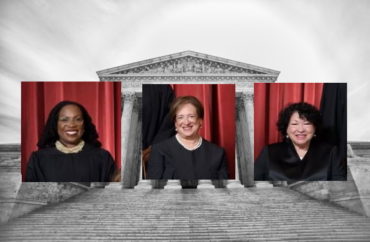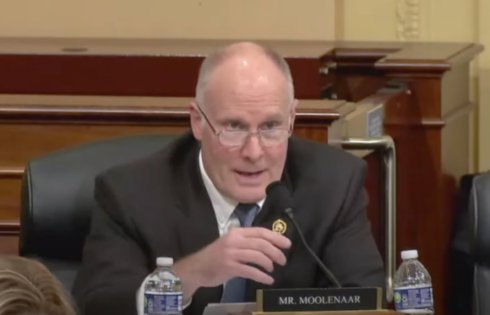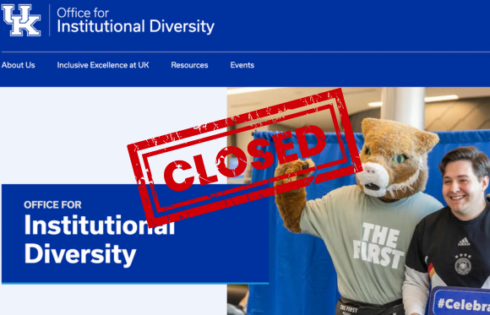
Supreme Court Justices Sonia Sotomayor, Elena Kagan and Ketanji Brown Jackson’s dissents to the recent groundbreaking decision outlawing affirmative action in college admissions included flaws in not only data and facts but also logic and reasoning, according to numerous conservative scholars who have picked it apart.
“Sotomayor and Jackson each wrote dissents against the court’s ruling that Harvard and the University of North Carolina discriminated against white and Asian American applicants by using race-conscious admissions policies that benefited applicants from underrepresented backgrounds. Kagan signed both dissents,” according to Politico.
Theodore Frank, director of litigation at the Hamilton Lincoln Law Institute, pointed out to The College Fix via email that “Justice Sotomayor incorrectly claimed that no non-whites attended University of North Carolina before the end of Jim Crow.”
“It’s regrettable that the dissents relied so heavily on incorrect factual premises, and regrettable that amici briefs misled them,” Frank said.
In addition, the dissent cited a medical study that had been disproved by Frank, a member of the Supreme Court bar. The three justices had falsely claimed health disparities among minorities lead to shorter life expectancy.
In the UNC dissent, Jackson claimed affirmative action doubles the chance of black infant survival: “For high-risk Black newborns, having a Black physician more than doubles the likelihood that the baby will live, and not die.”
Frank told The Fix that “Justice Jackson incorrectly repeated an implausible and inaccurate statistic about infant mortality from an amicus brief, and also incorrectly stated that all racial minorities have reduced life expectancies, when in fact U.S. Hispanics and Asians have longer life expectancies than whites.”
Hans Bader, practicing attorney in Washington D.C., told The College Fix via email that “In reality, Hispanics live longer than whites on average, and Asians live significantly longer than whites.”
The three left-leaning justices also argued “systemic inequities” are why racial preferences are needed, but ignored historical realities, scholars argued.
“Underrepresented minorities are less likely to have parents with a postsecondary education who may be familiar with the college application process,” and “stark racial disparities exist, for example, in unemployment rates, income levels, wealth and homeownership, and healthcare access,” Sotomayor wrote.
“These opportunity gaps,” she added, “result in fewer students from underrepresented backgrounds even applying to college.”
But many scholars have pushed back against — and in effect debunked — the dissent’s main argument that current racism is needed to make up for past racism.
A scholar from the Mises Institute pointed out that progressive policies over recent decades have eaten away at black progress far more than racism. The Great Society, a program instituted by Lyndon B. Johnson in 1964, catalyzed a radical decline in academic scores and a rise in government spending.
After the civil war, black per capita wealth increased 5% every decade relative to white people, all the way up to 1970 when the progress stopped.
Had that rate continued past the 70’s we would have seen racial wealth parity by the year 2040.
But something happened in the… pic.twitter.com/cfKYjq8CyF
— LudwigNeverMises (@LudwigNverMises) June 29, 2023
Jason Riley, a columnist at The Wall Street Journal, has observed that “the destructive legacy of the Great Society” was that “government subsidies for antisocial behavior stalled decades worth of black progress.”
The Heritage Foundation reported: “The current gap in learning between students from the highest 10 percent and lowest 10 percent of the income distribution is roughly four years of learning – the same as it was when Johnson launched his War on Poverty.”
Bader, also a former attorney at the Office for Civil Rights, told The College Fix via email that “Racial gaps exist everywhere on Earth, not just in nations with a legacy of race-based slavery or segregation, as the black economists Thomas Sowell and Walter Williams have noted.”
Bader wrote a piece headlined “Progressive Supreme Court justices advocate endless use of race in college admissions based on false claims about racial gaps” in Liberty Unyielding that pointed out “the wealth gap between blacks and whites shrank faster before affirmative action existed than afterwards.”
“…But according to the dissent by three progressive justices, using race in college admissions is the ‘only’ way ‘possible’ to somehow get rid of gaps between minorities and whites in ‘health, wealth, and well-being,’ and blacks must be given a racial preference in college admissions until those gaps disappear.”
“That claim ignores the fact that blacks were gradually closing the gap with whites before any affirmative action for blacks existed, indeed, at a faster rate than today,” Bader wrote.
Sowell, a leading economist and fellow at the Hoover Institute, authored a book on these issues titled “Discrimination and Disparities.”
“The crucial question is not whether evils exist but whether the evils of the past or present are automatically the cause of major economic, educational and other social disparities today,” he wrote.
“Wrongs abound in times and places around the world – inflicted on, and perpetrated by, people of virtually every race, creed and color. … At a minimum, history shows how dangerous it can be, to a whole society, to automatically and incessantly attribute statistical differences in outcomes to malevolent actions against the less successful,” Sowell added.
The dissenting justices are merely trying to cure “disease with more disease,” GianCarlo Canaparo, senior legal fellow at the Heritage Foundation, argued in an op-ed in The Hill.
“It is right to forbid discrimination, but it is wrong and counterproductive to attempt to cure this disease with more disease. That, at bottom, is why a color-conscious society needs colorblind laws,” Canaparo wrote.
Justice Clarence Thomas concluded in his concurrence that if the claims of the dissenting justices were taken to their logical extreme, there would “in fact … be no logical limit to what the government may do to level the racial playing field—outright wealth transfers, quota systems, and racial preferences would all seem permissible.”
Thomas added that “any statistical gaps between the average wealth of black and white Americans is constitutionally irrelevant.”
Like The College Fix on Facebook / Follow us on Twitter






Please join the conversation about our stories on Facebook, Twitter, Instagram, Reddit, MeWe, Rumble, Gab, Minds and Gettr.